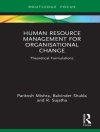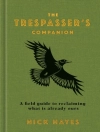In the 1890s, Mississippi society still drew a sharp line between its African American and white communities by creating a repressive racial system that ensured white supremacy by legally segregating black residents and removing their basic citizenship and voting rights. Over the ensuing decades, white residents suppressed African Americans who dared defy that system with an array of violence, terror, and murder. In 1960, students supporting civil rights moved into Mississippi and challenged this repressive racial order by encouraging African Americans to reassert the rights guaranteed under the Fourteenth and Fifteenth Amendments to the United States Constitution. The ensuing social upheaval changed the state forever.
In Student Activism and Civil Rights in Mississippi, James P. Marshall, a former civil rights activist, tells the complete story of the quest for civil rights in Mississippi. Using a voluminous array of sources as well as his own memories, Marshall weaves together an astonishing account of student protestors and local activists who risked their lives for equality, standing between southern resistance and federal inaction. Their efforts, and the horrific violence inflicted on them, helped push many non-southerners and the federal government into action, culminating in the passage of the 1964 Civil Rights Act and the 1965 Voting Rights Act — measures that destroyed legalized segregation and disfranchisement. Ultimately, Marshall contends, student activism in Mississippi helped forge a consensus by reminding the American public of its forgotten promises and by educating the nation to the fact that African Americans in the South deserved to live as free and equal citizens.
Über den Autor
James P. Marshall is an independent scholar and former non-resident fellow at the W. E. B. Du Bois Institute for African and African American Research at Harvard University.Staughton Lynd is a former professor of history at Yale University, a civil and labor rights activist and lawyer, and the author of numerous books on race, labor, and radical politics.












